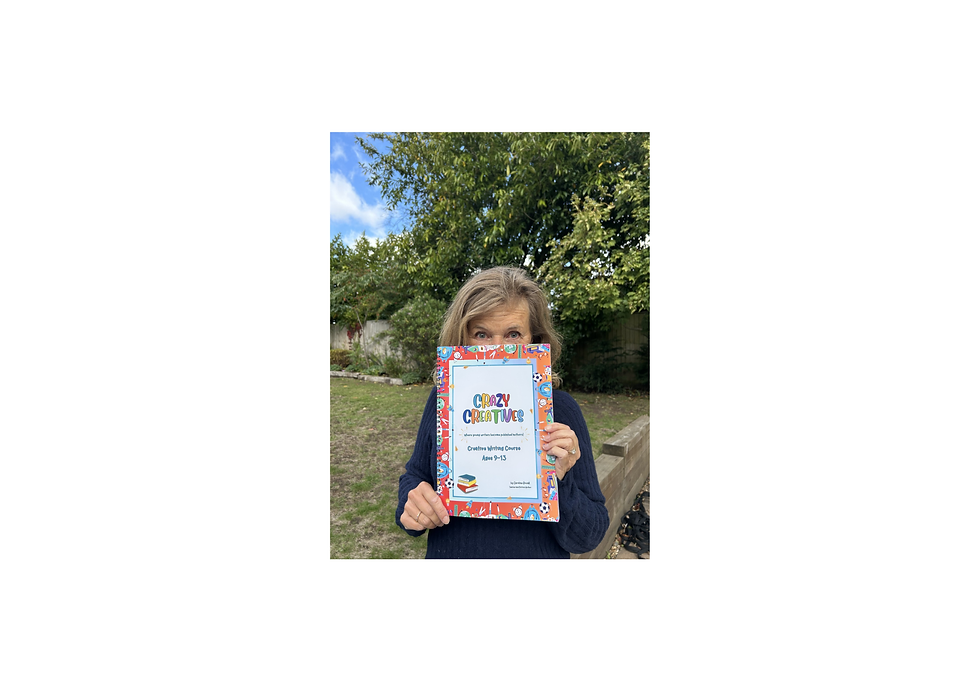Gran has Alzheimer’s
- carolineboxall
- Dec 14, 2020
- 3 min read
Updated: Feb 28, 2021
It’s Raining in Moscow and I Forgot my Umbrella features twelve-year-old Billy who lives on the dementia floor of a care home. His parents went missing nine years earlier during a terrible and mysterious house-fire.
Billy and Gran survived the fire and came to live at Autumn Days Care Home. Gran has a particular form of dementia called Alzheimer’s and sadly cannot remember anything about her life before the fire. The intention of my book was to make dementia less scary for children, but it seems that adult readers have taken comfort from the story too. I was thrilled to receive this review last week:

The character Billy was inspired by my son Charlie, who loved to visit his own Grandma in her care home. He accepted her exactly as she was and enjoyed talking to her even when she didn’t remember who he was, as shown in this extract from the book:
Grandma with Charlie as a baby

It’s great when Gran talks like that – we have a really funny chat sometimes. People might think it’s sad I can’t have a proper conversation with Gran. I never really know what she’s saying but I make a good guess. If someone says they can’t understand her she gets a bit upset.
Charlie could often be found patiently explaining that he was the son of her son which made him her grandson. She would listen with great concentration and then come up with a totally unrelated comment.
In this extract Billy is trying to find out how Gran got hold of one of the other resident’s missing bracelet:
“Gran, where did you find that bracelet?”
Gran looked at me as if she was trying to process what I’d just said.
“Well I think it was on the train,” she said. “Yes, and she had a little dog on her knee.”
She looked at me as if she had just got a complicated maths question right. I knew one thing for sure: Gran wasn’t going to be able to tell me where she found that bracelet!
The Alzheimer’s Society explains that as the disease progresses, the patient can become more forgetful and more frail:
In the later stages of Alzheimer’s disease someone may become much less aware of what is happening around them. They may have difficulties eating or walking without help.
My mother-in-law sadly got to a stage where she wasn’t able to eat without help. This didn’t deter my son. Aged seven he loved the chance to help Grandma with her food. Surprisingly she didn’t mind this at all. Seeing him gently spoon food into his Grandma’s mouth was sad, touching and poignant. Only six years earlier she had done the same for him.
In this extract Billy is visiting Gran in hospital:
“How about you give her some apple?”
Neelam got out the bowl and a spoon. She showed me how to get a little bit of apple onto the spoon and slide it into Gran’s mouth. Gran seemed to know that it was good for her and she chewed and swallowed, but she still had her eyes shut. I had managed to get most of it in when she slowly opened her eyes, looked at me, and said in a croaky voice, “Ah Michael, there you are. You’re a good boy.”
Alzheimer’s is horrible there is no denying. I hope, through my book I have been able to make it a little less scary.
It's Raining in Moscow and I Forgot my Umbrella is available on Amazon in paperback and on Kindle and Kindle Unlimited

Charlie and me holding the first copies of It’s Raining in Moscow and I Forgot my Umbrella
#dementia #frontotemporaldementia #ftddementia #alzheimers #dementiaawareness #alzheimersawareness #caregiver #dementiacare #elderlycare #alzheimer
#blog #blogger #newblogpost #middlegrade #middlegradewriters #IndieAuthors #selfpublishing #amwriting #writersofinstagram #mommylife #daddylife #parentlife





Comments